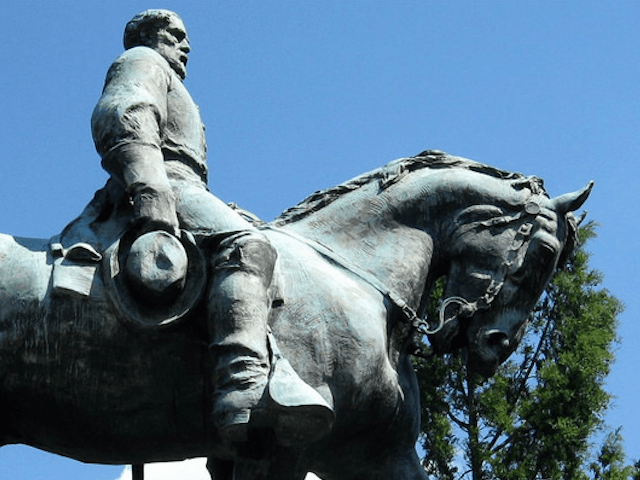President Donald Trump has evoked strong criticism from politicians and pundits after telling reporters on Tuesday that there were “very fine people on both sides” in Charlottesville.
But support for the president’s claim has come from an unlikely source: the “failing” New York Times, which interviewed one of those “very fine” people for an article otherwise critical of Trump, arguing that his remarks have led to a widening split in the Republican Party.
The Times reported Wednesday evening:
”Good people can go to Charlottesville,” said Michelle Piercy, a night shift worker at a Wichita, Kan., retirement home, who drove all night with a conservative group that opposed the planned removal of a statue of the Confederate general Robert E. Lee.
After listening to Mr. Trump on Tuesday, she said it was as if he had channeled her and her friends — all gun-loving defenders of free speech, she said, who had no interest in standing with Nazis or white supremacists: ”It’s almost like he talked to one of our people.”
Conservatives like Ms. Piercy, who have grown only more emboldened after Charlottesville, believe that the political and media elite hold them and Mr. Trump to a harsh double standard that demands they answer for the sins of a radical, racist fringe. They largely accept Mr. Trump’s contention that these same forces are using Charlottesville as an excuse to undermine his presidency, and by extension, their vote.
Anecdotally, reports of other, similar individuals have been circulating online.
On Tuesday, Trump condemned the white supremacists, KKK members, and neo-Nazis in the Charlottesville protest, but he also said that some people who were not extremists were there to voice a legitimate grievance against the removal of the statue of Confederate general Robert E. Lee. He said:
You have some very bad people in that group, but you also had people that were very fine people on both sides. You had people in that group — excuse me, excuse me — I saw the same pictures as you did. You had people in that group that were there to protest the taking down of, to them, a very, very important statue and the renaming of a park from Robert E. Lee to another name.
Those remarks were construed by Trump’s critics and opponents as saying that some of the white supremacists, KKK members, and neo-Nazis were among the “very fine people.”
Joel B. Pollak is Senior Editor-at-Large at Breitbart News. He was named one of the “most influential” people in news media in 2016. He is the co-author of How Trump Won: The Inside Story of a Revolution, is available from Regnery. Follow him on Twitter at @joelpollak.
